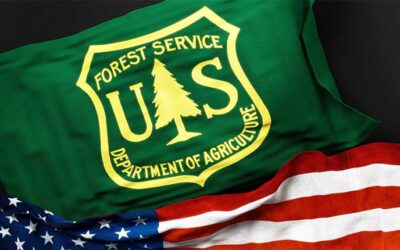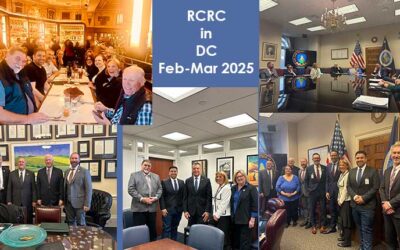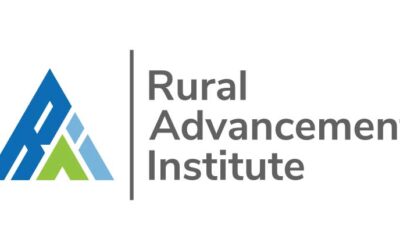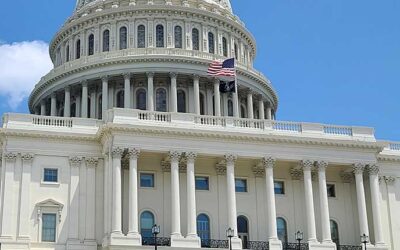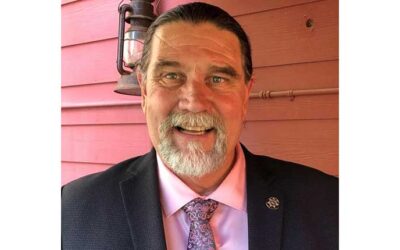RCRC, in coalition with local government partners, is sponsoring Senate Bill 496, authored by Senator Melissa Hurtado. This measure would provide more flexibility for local agencies implementing the Advanced Clean Fleets (ACF) mandate by ensuring disaster service...
Bill of the Week: Assembly Bill 339 (Ortega) – Local Public Employee Organizations: Notice Requirements
RCRC, as part of a large coalition, strongly opposes Assembly 339, authored by Assembly Member Liz Ortega. This measure would require the governing body of a local public agency (non-school) to provide written notice to the employee organization no less than 120 days...
President Trump Issues Executive Order on Timber Production
On March 1, President Donald Trump issued an Executive Order to stimulate U.S. timber production. The order directs the USDA, the U.S. Department of the Interior, and the U.S. Fish and Wildlife Service to develop plans for eliminating delays in timber production,...
USDA Forest Service Leadership Transition
On March 3, the USDA Forest Service (USFS) experienced a significant leadership transition. Chief Randy Moore has retired after a tenure of four and a half decades with the Forest Service. Moore is succeeded by Tom Schultz, who has recently been appointed as the 21st...
Join GO-Biz to Discuss Battery Energy Storage Permitting
On Wednesday, March 26, the Governor’s Office of Business and Economic Development (GO-Biz) is hosting a webinar bringing together state and local planning authorities and other industry leaders to discuss Battery Energy Storage System (BESS) permitting. GO-Biz is in...
Legislators Urge State to Extend Sunset for Key Program Supporting Small Biomass Facilities
On March 4, Assembly Majority Leader Cecilia Aguiar-Curry and ten other legislators sent a letter to the California Public Utilities Commission (CPUC) urging the CPUC to “extend and fully implement” the BioMAT program. The BioMAT program requires investor-owned...
Assembly Select Committee on Permitting Reform Releases Final Report
On March 4, the Assembly Select Committee on Permitting Reform released its final report containing recommendations to reduce red tape and expedite housing, energy, water, and transportation projects. The Select Committee, chaired by Assembly Member Buffy Wicks...
Governor Waives CEQA and Coastal Act for Authorized Fuel Management Projects While Legislators Introduce Multiple Bills Aimed at Long-Lasting Regulatory Relief
On March 1, Governor Gavin Newsom proclaimed a wildfire-related state of emergency to reduce regulatory barriers for wildfire risk reduction and community protection projects. In particular, the proclamation waives the California Environmental Quality Act (CEQA) and...
Disaster Mitigation and Tax Parity Act Introduced in U.S. House
On March 5, Congress Members Doug LaMalfa (R-Butte), Mike Thompson (D-Napa), Jimmy Panetta (D-Carmel Valley), and Greg Murphy, M.D. (R-NC) introduced the Disaster Mitigation and Tax Parity Act in the U.S. House of Representatives. This legislation exempts from federal...
Secretary Rollins Previews Her Vision for Restoring Rural Prosperity at NACo
On March 4, U.S. Secretary of Agriculture Brooke Rollins delivered remarks to hundreds of local leaders at the National Association of Counties Legislative Conference in Washington DC. There, she discussed rural prosperity, economic aid distribution, and the Farm...
Bill of the Week: Senate Bill 501 (Allen) – Household Hazardous Waste Producer Responsibility
RCRC is co-sponsoring Senate Bill 501, authored by Senator Benjamin Allen (D-Santa Monica) with the National Stewardship Action Council. This measure establishes an extended producer responsibility program for manufacturers of certain types of products that become...
RCRC Delegation Visits Washington D.C
Last week, RCRC delegates, including RCRC Chair, Modoc County Supervisor Geri Byrne; RCRC 1st Vice Chair, Mariposa County Supervisor Miles Menetrey; RCRC 2nd Vice Chair, Santa Barbara County Supervisor Bob Nelson; RCRC Immediate Past Chair, Monterey County Supervisor...
GSCA Completes Network Design For All 37 LATA Grants
GSCA has successfully completed work across all 37 Local Agency Technical Assistance (LATA) grants, serving 30 member counties and seven cities. This significant achievement culminates in the delivery of construction-ready network designs, approximately 40 miles of...
Learn More about Rural Advancement Institute
The Rural Advancement Institute is a 501(c)(3) non-profit established to facilitate education and research on issues impacting rural California. Visit RAI’s website to learn more about the work and how it addresses rural challenges and opportunities. Home | RAI...
CPUC Discusses Reliability Thresholds and Reporting Improvements on Power Outages
On Friday, February 21st, the California Public Utilities Commission (CPUC) held an all-day workshop to consider changes to existing policies regarding the safety and reliability of electrical distribution systems. Factors such as aging infrastructure, climate-driven...
Governor Announces New Local Accountability Measures & Website
On Monday, Governor Newsom announced accountability measures for local jurisdictions to demonstrate results to continue receiving state homelessness funding. Communities that receive awards through the newest round of HHAP (Homeless Housing, Assistance and Prevention)...
Senate Agriculture Committee Democrats Inquire About USDA Layoffs
On February 25, U.S. Senator Adam Schiff (D-CA) joined Senator Amy Klobuchar (D-MN), Ranking Member of the Senate Agriculture, Nutrition, and Forestry Committee, and all Committee Democrats in a letter asking the U.S. Department of Agriculture (USDA) for details about...
House Passes Budget Resolution Opening the Door for Negotiation with the Senate
On February 25, the U.S. House of Representatives passed their budget resolution (H. Con. Res. 14) by a vote of 217-215. This step will allow the reconciliation process to begin, a legislative procedure that only requires simple majorities from both chambers to enact...
Little Hoover Commission Begins Hearings on Energy Affordability
On Thursday, February 27th, the Little Hoover Commission conducted the first of several hearings on electricity costs. At the hearing, Severin Borenstein from UC Berkeley and Matthew Freedman from The Utility Reform Network were joined by RCRC’s John Kennedy and...
Bill of the Week: Assembly Bill 993 (Hadwick) – Rural CUPA Reimbursement Account
RCRC is co-sponsoring Assembly Bill 993, authored by Assembly Member Heather Hadwick (R-Alturas) with the California Association of Environmental Health Administrators (on behalf of the CUPA Forum). This measure would expand eligibility for CalEPA’s Rural Certified...
RCRC Board Member Spotlight: Miles Menetrey (Mariposa County) – RCRC First Vice Chair
This is the second installment of the RCRC Board Member Spotlight, a recurring feature of the Barbed Wire! The Board Member Spotlight is intended to familiarize subscribers with RCRC Board members, providing insights from their background in public service to their...
U.S. Transportation Secretary Duffy Announces Review of California High-Speed Rail Project
On February 20, at the direction of Secretary of Transportation Sean P. Duffy, the Federal Railroad Administration (FRA) initiated a review of the California High-Speed Rail Authority (CHSRA). This review will help determine whether roughly $4 billion in taxpayer...
Bipartisan Bill Introduced to Promote Wildfire Mitigation Through Wildlife Grazing
On February 13, U.S. Senators Alex Padilla (D-CA), Jerry Moran (R-KS), Mazie Hirono (D-HI, and James Lankford (R-OK) introduced the Wildfire Resilience Through Grazing Research Act (S. 602), bipartisan legislation to promote research on how grazing can support...
Secure Rural Schools Reauthorization Act Introduced in 119th Congress
The Secure Rural Schools (SRS) Reauthorization Act (S. 356/H.R. 1383) has been introduced in the 119th Congress amid pressure to act swiftly to avoid significant budget cuts or tax hikes. Attempts to pass SRS legislation in the 118th Congress failed, despite...
CalRecycle Illegal Dumping Emergency Regulations Approved by OAL
On February 14, the Office of Administrative Law (OAL) approved Emergency Regulations adopted by CalRecycle concerning illegal dumping and land application of solid and organic waste. CalRecycle’s regulations are intended to stop illegal and improper land...
CPUC Announces Upcoming Public Participation Hearings Impacting Landline Phone Service
In coming months, the California Public Utilities Commission (CPUC) will hold in-person and virtual public forums to receive customer input regarding its Carrier of Last Resort (COLR) Proceeding. The COLR proceeding will consider updates and changes to rules that...
Bill of the Week: Assembly Bill 632 (Hart) – Local Ordinances: Administrative Fines or Penalties
RCRC is sponsoring Assembly Bill 632, authored by Assembly Member Gregg Hart (D-Santa Barbara). This measure would enhance local enforcement mechanisms for unlicensed cannabis activities, state housing law violations, and fire hazards by codifying existing caselaw...
Call for Support Letters for Assembly Bill 240 (Alanis) – Community Colleges Study
RCRC-sponsored bill, AB 240 (Alanis) is heading to the Assembly Committee on Higher Education on March 18. RCRC is asking for support letters from our counties to help bolster our advocacy efforts. This bill would require the Little Hoover Commission to conduct a...
Bill of the Week: Assembly Bill 470 (McKinnor) – Telecommunications
On February 6th, Assembly Bill 470 was introduced by Assemblymember McKinnor (D-Inglewood). This measure is intended to make changes to the Carrier of Last Resort (COLR) rules in California. AT&T, sponsor of the legislation, indicates that the bill will be amended...
Congress Members LaMalfa and Thompson Introduce Disaster Resiliency and Coverage Act of 2025
This week, Congressmen Doug LaMalfa (R-Butte) and Mike Thompson (D-Lake) introduced the Disaster Resiliency and Coverage Act of 2025 to provide homeowners in disaster-prone regions with incentives to harden their properties against wildfires and other risks. This...
 Sarah Dukett
Senior Policy Advocate
Sarah Dukett
Senior Policy Advocate
 Leigh Kammerich
Senior Policy Advocate
Leigh Kammerich
Senior Policy Advocate
 John Kennedy
Senior Policy Advocate
John Kennedy
Senior Policy Advocate
 Staci Heaton
Senior Policy Advocate
Staci Heaton
Senior Policy Advocate
 Tracy Rhine
Senior Policy Advocate
Tracy Rhine
Senior Policy Advocate
 Eric Will
Policy Advocate
Eric Will
Policy Advocate
 Mary-Ann Warmerdam
Senior Vice President Governmental Affairs
Mary-Ann Warmerdam
Senior Vice President Governmental Affairs




